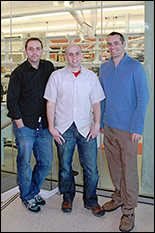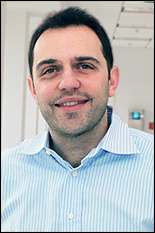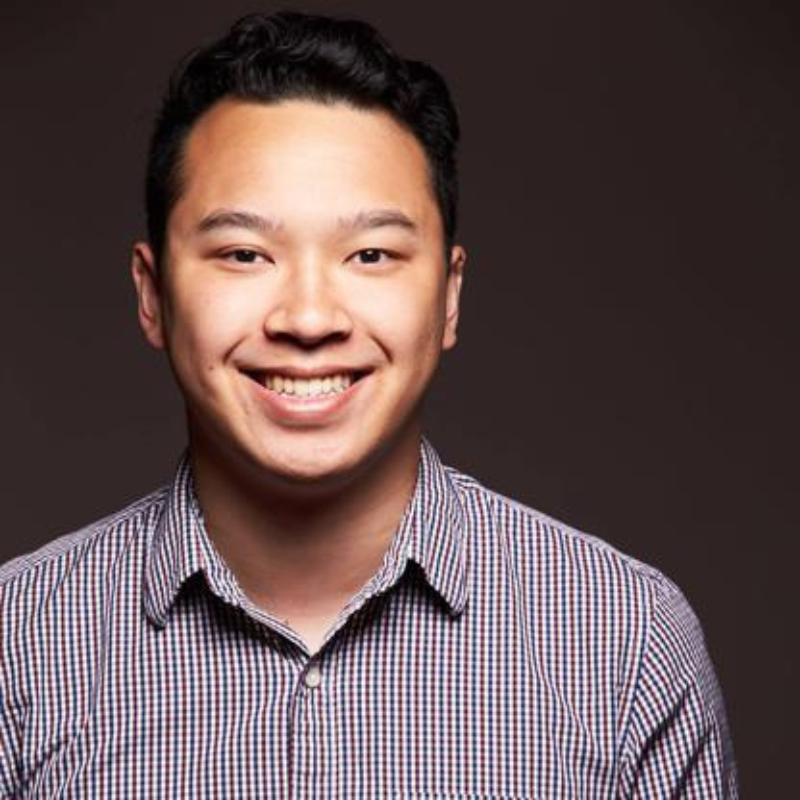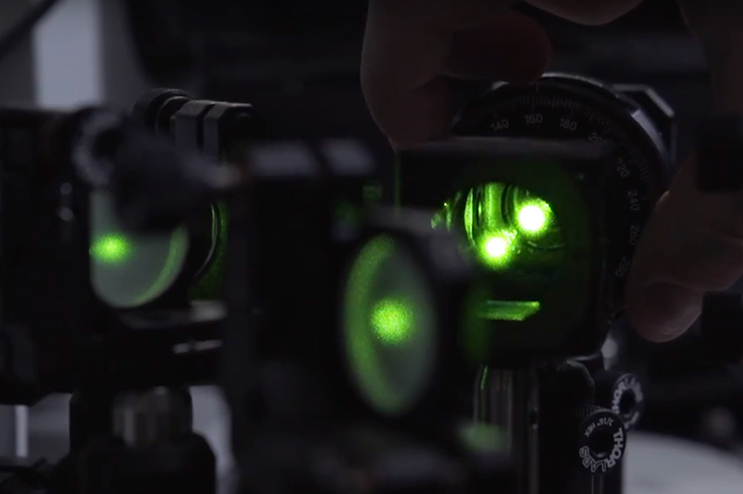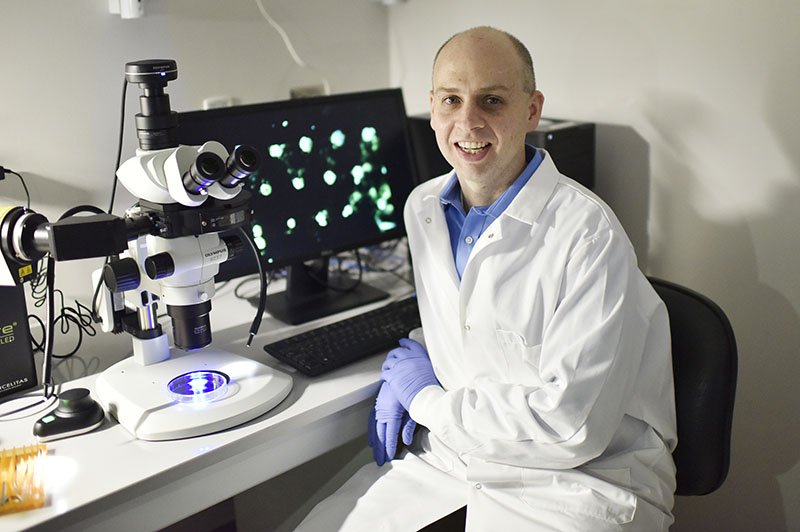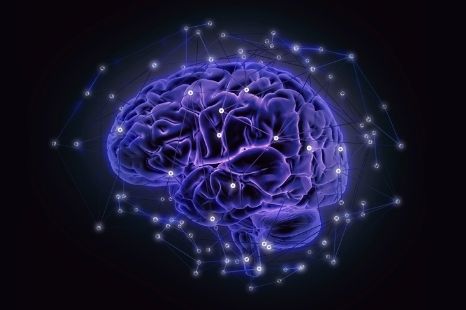News Story
Scarcelli Named NIH K25, Human Frontier Science Program Grant Recipient
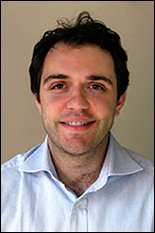
Newly appointed Fischell Department of Bioengineering (BioE) Assistant Professor Giuliano Scarcelli has entered the second year of a National Institutes of Health (NIH) K25 – Mentored Quantitative Research Career Development Award for his proposal, “Imaging cellular biomechanics on-chip in 2D and 3D microenvironments.”
The award, established to support research-oriented scientists focused on behavioral or biomedical research, will provide more than $710,000 in funding over five years.
Through the K25 project, Scarcelli is focused on the integration of advanced photonic technology and microfluidics to attack a major unmet challenge in cell biomechanics – the development of an effective technique to measure cell/extracellular matrix (ECM) elasticity.
Current techniques have limitations because they require point-sample analysis or contact. Knowing this, Scarcelli set out to develop Brillouin cellular microscopy, a technique through which light is passed through a medium to sample its intrinsic acoustic vibrations, which reveal the medium’s mechanical properties.
Scarcelli plans to apply this technique to map intracellular elasticity and combine it with fluorescent-based imaging of cytoskeletal components and intracellular mechanotransduction. Additionally, by integrating this technique with microfluidic platforms, Scarcelli’s research team is able to maintain tight control of microenvironment conditions.
“Cells are heterogeneous, alter their properties upon mechanical perturbation, and often need to be studied in 3D microenvironments,” Scarcelli said. “This poses a variety of challenges for current elasticity measurement techniques. Our approach could potentially address these challenges by using light to provide three-dimensional maps of cell elasticity without disturbing or altering the cell.”
The K25 career development award will further enable Scarcelli’s transition to research in cellular biomechanics and mechanobiology by complementing his expertise in optical technology development with the necessary training in cell biology and microfluidics through formal coursework, interaction with mentors and hands-on laboratory training.
In addition to the NIH K25 award, Scarcelli was also recently named a recipient of the highly competitive Human Frontier Science Program (HFSP) Young Investigator grant. Awarded to researchers in their first five years after obtaining an independent laboratory, the HFSP grant supports novel, innovative and interdisciplinary basic research focused on the complex mechanisms of living organisms.
Through the project titled, “Neurons feel the force: new photonic tools to unravel the development of the nervous system,” Scarcelli plans to apply his work with Brillouin cellular microscopy to the central nervous system (CNS).
The development of the CNS is one of the most spectacular processes in biology. Key aspects include the formation of neuronal axons, their subsequent growth and guidance through thick layers of nerve tissue, and the folding of the brain. All these processes involve motion and are driven by forces; however, while understanding of the biochemical and molecular control of these processes is increasing rapidly, the contribution of the dynamic interplay between cellular forces and tissue elasticity remains poorly understood – mostly due to a lack of suitable measurement techniques.
To address this need, Scarcelli and fellow researchers Kristian Franze (Cambridge, UK) and Malte Gather (Dresden, Germany) will integrate expertise in optics, biophysics and neurobiology to investigate the role of mechanics in CNS development. Their proposal involves the construction of a novel photonic toolbox for in situ, label-free and non-contact measurements of cellular forces and elasticity.
Gather will focus on force-sensing measurements based on spatially mapped nanoscale deformations of an ultra-flexible planar optical microcavity in response to local stress, while Scarcelli will apply high-resolution Brillouin microscopy to measure elasticity of CNS tissue. Combining force and elasticity measurements, Franze will examine how forces exerted by neurons contribute to axon formation and neuronal guidance.
The HFSP grant will provide $350,000 in total funding over three years.
In the latest HFSP Young Investigators’ Grants application round, approximately 850 applications were submitted for the prestigious award and fewer than 5 percent were funded.
Published November 12, 2014
